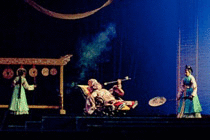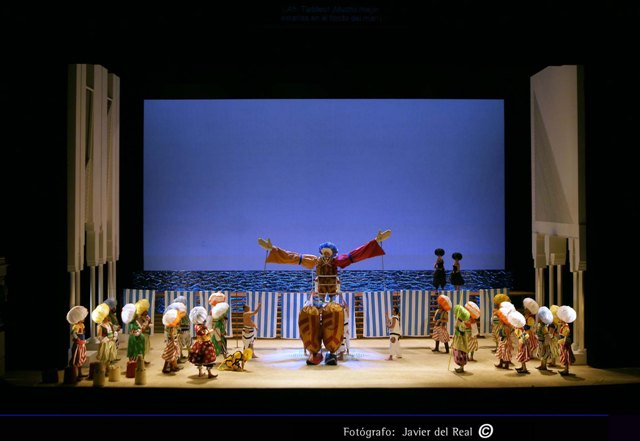“Fabulous display” is the best way to define the World Puppet Festival in Chengdu that took place alongside the UNIMA Congress. Not only because of the huge number of shows involved – exactly 101 different puppet shows -, but also of theatres, of the number of people in some of the companies, and the vast size of some of the venues involved. The international presence was huge, with representatives from almost every country in the world of most puppeteering significance, which also meant significant logistical deployment. If one takes into account that the Festival not only took place in the city of Chengdu but also in Nanchong, the second city of the Sichuan region, with over seven million people, it becomes clear that it can be considered as one of the largest festivals in the world.
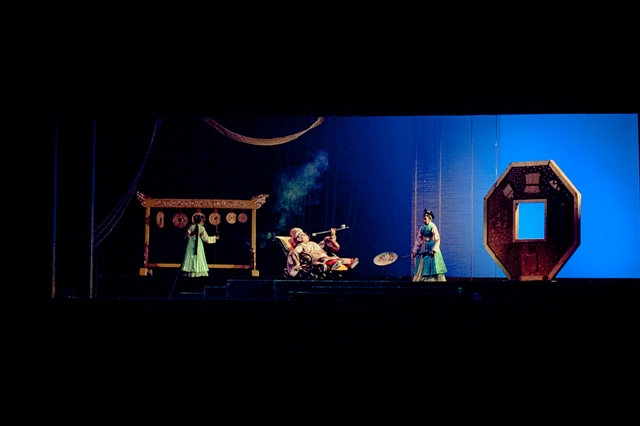
Marionettes from Quanzhou. Photo by Jim Tobias.
Ms. TANG Da Yu, General Secretary of UNIMA China, told me that her country finds itself in a very special moment, thanks to the support that the art of puppetry is receiving from the Chinese government. Aware of the enormous importance of the various traditions that have been kept alive in China and which include all varieties of the genre, from shadow theatre to string marionettes, to glove and rod puppets, government bodies have reacted and have chosen to support these traditions, promoting knowledge about them, rescuing those which are almost lost, and helping companies to establish themselves and modernise their equipment. Of course not everything is resolved and the needs are endless. Therefore, during the Congress, Ms. TANG Da Yu asked for the help and support not only of International UNIMA but also of anyone interested in the subject.
Certainly it can be said that the enormous energy this country exudes was also seen by us in the puppet shows, and in the huge and impressive Opening Ceremony, discussed previously on this site. Arguably, the same force that lifts China’s countless skyscrapers, airports and other major constructions, is what animates the bodies of the manipulators we saw who dedicate themselves to their work with a degree of concentration and levels of physical endurance and skill, and virtuosity, rarely seen. This desire to go ever further and rise to the pinnacle of achievement sometimes works to the detriment of the show’s final results, with an excess of decibels and means employed, or using exaggerated soundtracks that sound like film scores, as I saw in some cases. But this does not prevent us from appreciating the tremendous efforts and great dedication of the artists.
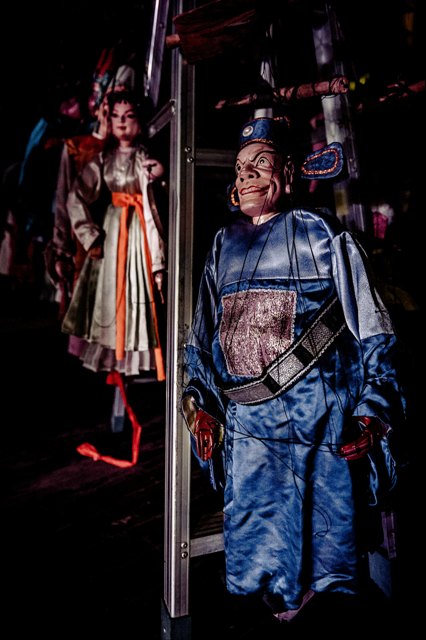
Marionettes from Quanzhou. Photo by Jim Tobias.
It was impressive to see the seriousness with which tradition is treated, with a respect and concern for excellence that makes us think that if they continue in this way, it will not be long before China becomes the great power of world puppets when, to these revived traditional forms the contributions of contemporary groups working from a perspective of “creation” is added. This is similar to what happens in Japan, though on a larger scale given the size of the country.
It was a great joy to see once again the Quanzhou Marionette Company and say hello to Mr. Huang Yi-Que, its current director, who I interviewed in Lisbon in 2008. I have known the company since 1990 when I visited their theatre and was able to interview the great master, Mr. Yuan, who died years ago now. This time the company presented the show “The Imperial Envoy”, a work that demands great virtuousity of manipulation, with puppets that smoke pipes, go up and down stairs, ride a monocycle, juggle, etc. It uses a large double bridge and an impressive display of theatrical means. From my point of view, without a doubt one of the best string marionette companies in the world.
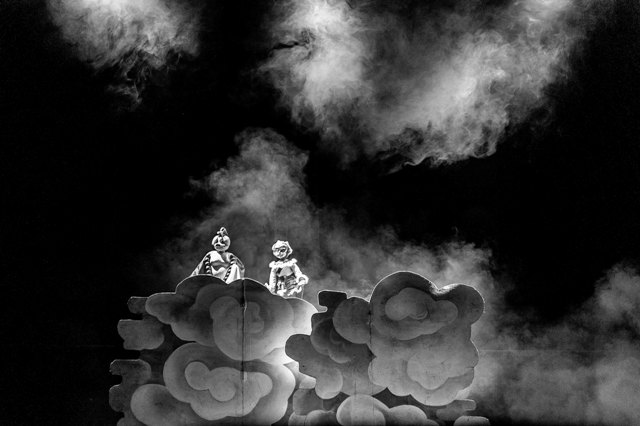
King Monkey in one of its journeys. Photo by Jim Tobias.
Local and foriegn audiences were also captivated by the outstanding shadow shows of the company Zhejiang Haining, with “The Mountain on Flames”, or the North Sichuan Shadow Play with “Decapitate Yang Cai”, or “Mountain of Flames” by the Changli Xiangdong Shadow Play Company, or the brilliant displays of the glove puppeteers of Fujian Zhangzhou Puppet Troupe or the Single Wuchuan Guandgong Puppet Troupe with “Loyalty to the Country”. It would be impossible to name all the companies and interesting shows, not only because of the impossibility of seeing them all, in performance, but also because of the number of companies. As I said at the beginning, the presence of Chinese puppets, which was undoubtedly the great challenge of the festival, was exhuberant and the organizers can be happy of their success.
In sum, a fabulous display of the resources and boundless energy of a country that keeps on growing.

